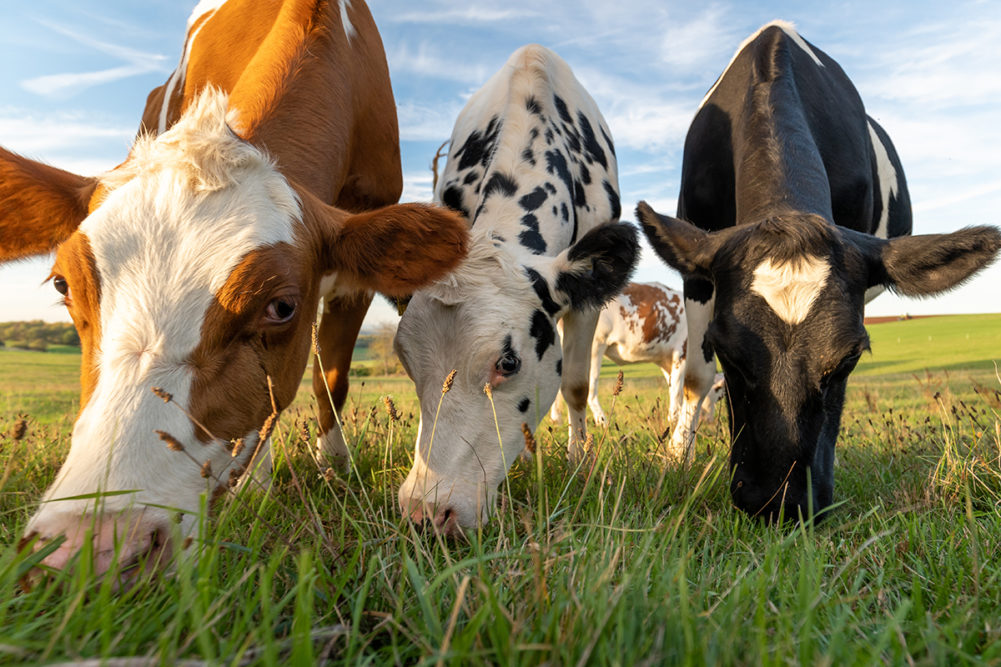Wichita, Kan.-based Cargill Protein defines corporate responsibility as the commitment to making a positive impact in the communities where it operates, said Pete Stoddart, Cargill’s North American director for corporate responsibility.
“We believe that beef can be a force for good, which is why our focus is on investing in programs that address local challenges and improve the well-being of residents and their families – including our own employees who live and work in these communities.”
Given the many challenges faced in the different communities where Cargill operates, there’s no one-size-fits all solution to corporate responsibility, Stoddart said. But recurring themes for the company include sustainability, food insecurity, health and diversity, equity and inclusion.
1. Sustainability
Through Cargill’s BeefUp Sustainability initiative, the company’s goal is to cut beef emissions from its North American beef supply chain by 30% by 2030. “We believe agriculture provides significant opportunities to reduce our carbon footprint and with the help of ranchers and farmers already leading efforts around this, we can continue to make an impact,” Stoddart said.
2. Food Insecurity
To tackle food insecurity, Cargill has created initiatives to address the protein “gap” experienced by communities in need across the US. For instance, the company recently made a $4.9 million donation to the Feeding America network of member food banks. However, many local food banks lack the necessary infrastructure to refrigerate and repackage donated bulk proteins in a safe way. Cargill’s donation, Stoddart said, supports increasing the supply of nutritious protein for these banks to help bridge that gap.
3. Health
Cargill is dedicated to building healthy communities for its colleagues and neighbors. In support of the communities in which it operates, such as in the Nebraska cities of Columbus and Schuyler, where Cargill has protein processing facilities, the company made a $200,000 donation to The Columbus Community Hospital Foundation in support of the hospital’s fieldhouse project. The new facility will include tennis courts, a football field, a soccer field, volleyball courts, basketball courts and a suspended track for walking and running.
4. Diversity, equity and inclusion
Last year Cargill Protein North America funded a $2 million gift to help create the Wichita Collective Impact, a collaboration with Wichita non-profits and education communities. The initiative works to increase education success and workforce readiness in Wichita – specifically in youth and career development with the hopes of continuing to make Wichita more diverse, equitable and inclusive.
To tackle all of the complex challenges communities face, Cargill has deepened its relationships with local communities, Stoddart said.
“Partnerships with leading non-profits, universities and our customer partners are an effective way to make a real difference in the communities we serve,” he said. “Through our extensive collaborations with partners across regions and supply chains, we’re proactively addressing the needs of individual communities – enabling them with greater access, representation and a stronger voice.”
In addition, he said, Cargill is continuing to tap into knowledge about its customers and consumers in the food and protein industry, given its mission of nourishing lives in a safe, responsible, and sustainable way. “Increasingly, consumers are not only conscientious about their own health and well-being, but also the environmental impact of their choices at the grocery store. Sixty-three percent of consumers want to know more about the who, what, where and how behind their favorite food purchases, according to our research.”
As part of its BeefUp program, for instance, in March, Nestlé, Cargill and the National Fish and Wildlife Foundation (NFWF) announced a collaboration to create one of the largest public-private partnerships supporting sustainable grazing projects in the United States with up to $30 million in grant funding over the next five years.
This article is an excerpt from the November 2023 issue of Supermarket Perimeter. You can read the entire Corporate Responsibility feature and more in the digital edition here.

